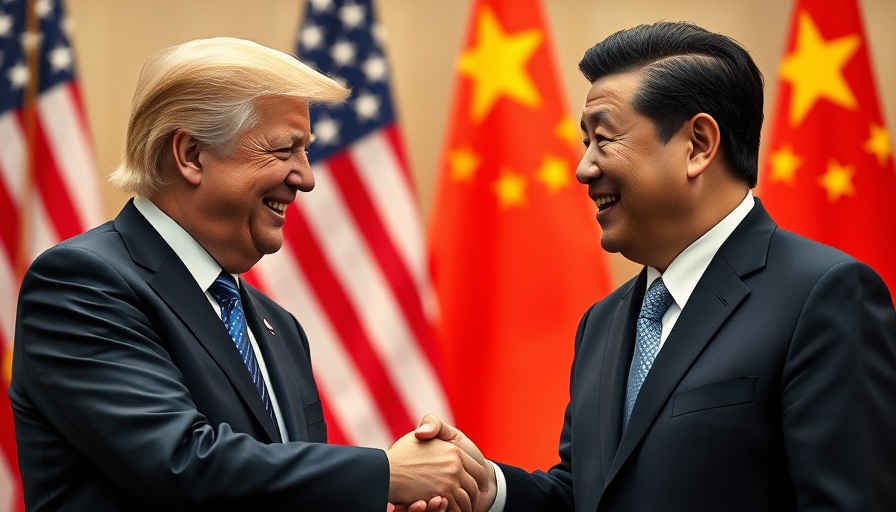
Trump's Trade Claims: What They Really Mean for America
Donald Trump recently stated that he received a call from Chinese President Xi Jinping, further asserting that he has negotiated '200 deals' on trade. This bold claim has stirred discussion among political analysts and business leaders regarding its implications on US-China relations and the domestic economy.
Historical Context: The Evolution of US-China Trade Relations
Understanding Trump's claims requires a view into the historical trade dynamics between the United States and China. The US has always been cautious about trade surplus and deficits with China, especially as the former retains a significant trade imbalance. In 2001, the US officially welcomed China into the World Trade Organization, which significantly altered trade flows. In the last two decades, tariffs and tariffs negotiations have alternated, with Trump’s administration taking a particularly aggressive stand starting in 2018.
Relevance to Current Events: What’s at Stake for American Business
As Trump gears up for the 2024 election, his declarations about trade deals are not solely about international diplomacy; they reflect a strategy aimed at wooing American voters concerned about job security and economic policies. Many Bay Area startups and businesses are watching closely, as trade agreements directly affect supply chains, operational costs, and market competition. Venture capital funding continues to focus on industries most impacted by these trade policies—particularly tech, where dependence on Chinese manufacturers is profound.
Monitoring the Effects: Business Trends and Economic Forecasts
The reality of Trump's assertions hinges on economic forecasts which predict that any easing of trade tensions could bode well for the tech industry and international business landscape. With Silicon Valley startups relying heavily on accurate assessments of tariff futures, investors are analyzing the economic trends that could arise from any potential agreements between the two nations. Should Trump’s claims materialize into actual agreements, it could lead to significant shifts in market dynamics.
Counterarguments and Diverse Perspectives: Not Everyone Sees It the Same Way
Not everyone is convinced by Trump’s claims, however. Some economists argue that even if 200 deals were negotiated, they may not yield the expected benefits. Critics claim that deals often change little on the ground, particularly if they do not address structural issues like intellectual property theft and trade unfair practices. Without addressing these core issues, any claim of significant trade progress may be seen as mere political rhetoric.
The Future of Trade Relations: Insights into Opportunity Trends
Looking ahead at future predictions, experts believe that the relationship between the US and China will continue to evolve, determined not only by leaders' claims but also by grassroots business actions. Many businesses are adapting to a new reality that emphasizes resilience and adaptability—a necessity in a world where international trade can be volatile. Bay Area businesses, for instance, are building contingency plans for supply chain disruptions, reflecting a newfound cautious optimism characterized by innovative preparedness.
Engaging with Current Trade Policies: Tools and Resources for Local Businesses
For Bay Area entrepreneurs, staying informed about trade policies is crucial. Local business updates and workshops focusing on corporate partnerships and sustainable practices are becoming increasingly relevant as the narrative around trade develops. Engaging with industry networks and utilizing resources that cover economic analysis inform businesses of evolving consumer behavior trends and advocacy for corporate social responsibility.
Conclusion: Why This Matters Now
The implications of Trump's announcements extend beyond mere political posturing; they signal crucial changes for the Bay Area economy and international business landscape. Understanding these dynamics is essential for anyone invested in the future of trade, technology, and entrepreneurship. As the situation continues to unfold, local businesses must remain agile and informed, capable of adapting to the changing tides of international relations.
 Add Row
Add Row  Add
Add 



Write A Comment